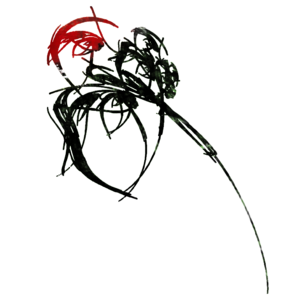Derilict Republic

The Derilict Republic is a nation within Planetary Strife. Formed during the collapse of the Human Confederation, the nation has not grown much, preferring to build up its defenses.
Span
The Republic's span covers only the Derilict System after which it is named. It has no desire or intention to change this.
War Machine
The Derilict Military system is composed of two branches, the army and the navy.
The Navy handles all space-related parts of the military. Uniforms are black with silver trim. Their ranking system is composed as follows:
- Cadet: Lowest-level rank. Handle support tasks and other 'menial' duties. No rank markings.
- Technician: Next rank up, technicians handle all tasks such as ship repairs, onboard weapon gunning, and hangar flight control. Rank marking is one caret on each shoulder. There are subranks of technician that are equal to Pilot and Squad Leader (Sr. Tech and Master Tech, respectively). However, these are in a seperate command chain, and thus not listed here. Technicians also handle onboard guard duties, however, when performing these duties they are reffered to as 'Guard', rather than 'Technician'. However, they are still exactly the same within the command chain.
- Pilot: This rank is given control of their own ship. The pilot stays with that same ship until promoted, or the ship is destroyed. Rank marking is two carets on each shoulder, with the squadron insignia below the left carets.
- Squad Leader: One rank above the pilots, squad leaders command a squadron of twelve, but still fly as one of the twelve in the squadron. All squadron commands from higher up go through the squad leader. Rank marking is two carets on each shoulder, with squadron insignia below both shoulders.
- Officer: Officers are given specialized duties regarding their talents. They are divided into: Subofficer, Officer, and Senior Officer. All persons at this point or higher are required to get standard Navy implants. Rank marking is one rose on the right breast.
- Captain: Captains are in command of an entire ship, such as a frigate. They are the lowest rank considered an 'executive' rank. Rank marking is two roses on the right breast.
- Overcaptain: Given to more experienced captains. Exists solely to keep the command shain working, so, for example, a green Frigate captain would not be on par with an experienced Destroyer captain. Rank marking is two roses on the right breast, outlined in silver thread.
- Commander: Commanders are given control of an entire battle group. Similar to Squad Leaders, but with bigger ships. Rank Marking is three roses on the right breast.
- Admiral: The highest rank one can achieve in the Navy. Commands entire fleets of ships. Rank marking is one rose on each shoulder, outlined in silver trim.
Derilict Army
The Derilict Army handles any land-based manuvers. Dress uniforms are cream with dark green trim (field uniforms are usually camoflage for whatever environment). Much less stuctured than the Navy:
- Lancer: The basic rank in the Army. No rank markings.
- Squad Leader: Commands twenty Lancers. No relation to Navy Squad Leaders. One caret on each shoulder.
- Captain: Commands a company (five squads). Internally divided into undercaptains, captains, and overcaptains. No relation to Navy Captains. Rank markings are one, two, or three knots of green thread on each shoulder.
- Commander: Commands a battalion of five companies. No relationship to Navy commanders. Rank marking is one rose on the left breast.
- General: Highest possible rank in the Army. Given command of a force (a group of battalions acting together). Rank marking is a rose on each shoulder. Equal to Navy Admirals.
Government
The Republic is composed of two branches of government, the Civil Branch and the Military Branch. Both of these branches are run by a people-elected Council of Regents.
Council of Regents
The Council of Regents is elected by the people every ten years, at the same time of the Derilict Census. This group makes laws and oversees the work of the two branches.
Members of the council may run for election as many times as they want, but may never be re-elected. This means that every ten years, every seat in the Council changes.
Civil Branch
The Civil Branch is lead by the council-elected Head of State. The Civil Branch manages all non-military matters of the government. The command chain of this branch is too complicated to be listed here with any ease.
Military Branch
To prevent bearaucratic hand-tying, the Military Branch is led by the Admirals and Generals (see above) in a council-like arrangement. However, the authority to declare war or make a preemptive strike is only available to the Council.
History
To be written --w-dueck talk 17:35, 15 August 2009 (UTC)
| ||||||||||||||||||||||||||||||
